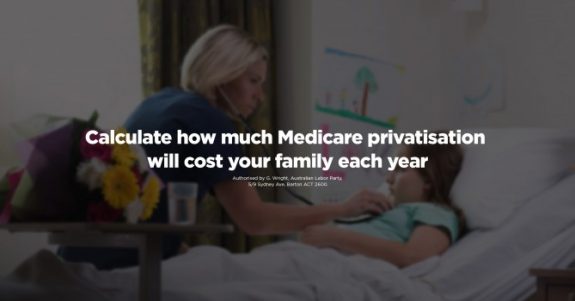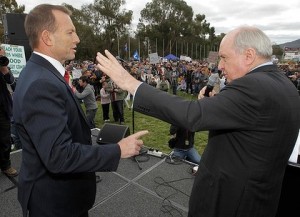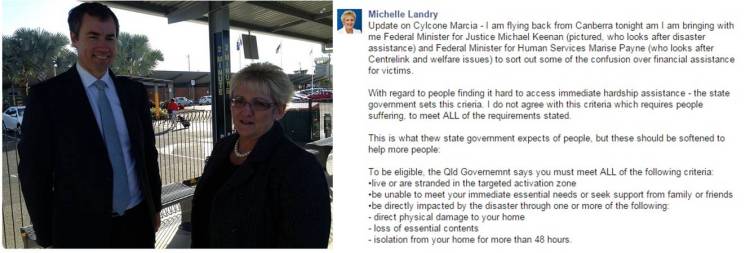Cashless society hitting those least able to pay

By Ross Hamilton
I first heard about a cashless society back in 1980 when I started work for the Commonwealth Bank. Our manager returned from a conference, informing us that the wheels had started turning to make Australia a cash-free society in as little as ten years. Thirty-seven years later, and a long time after the end of my banking career, it seems we are finally getting very close to that point of cash becoming a thing of the past. But so far, I am not seeing anyone talk too much about the very real negative that can come with this unless a government finally steps up to the plate for real for the first time.
The amount of cash used in the Australian economy will have been on the decrease the last few years with the continuing growth in eftpos including the maturing of the ‘pay-wave’ technology. The more we use those technologies, the less we need cash. But at what cost?
The Reserve Bank is about to introduce innovative technology which will make money transfers happening almost instantaneously, and, so the argument goes, we have less need than ever for the plastic folding stuff. And it can be argued that removing cash from society saves us the cost of producing it.
The pretty bits of plastic we currently use to pay for a steak sanger at the pub for lunch will be replaced by electronic transactions via the banks. And what shall the banks do? Continue racking up more fees for us all to pay. The big four banks in Australia already make literally billions in profit each year. And a massive part of that profit comes from all the fees they charge. The interest on your loans just essentially pays the bills. It is fees that create those obscene profits.
Banks have it down to a fine art – charging for anything and everything. The frequent excuse is that they are just recovering costs. And that is complete garbage. Are we really expected to believe that it costs a bank two-dollars or more to automatically process an electronic ATM withdrawal for a non-customer? Of course it doesn’t! It is a punishment fee for daring to not be that bank’s customer and adding to the pile in their Scrooge McDuck Money Bins.
What is going to happen once cash is removed from our grubby little hands? Everything becomes simply transactions on our credit card or bank account. And what will banks do in response to that? They can be relied on to keep charging fees which reflect the amount of transactions on accounts. Dumping cash in favour of an all-electronic system shall mean a drastic increase in the amount of transactions. And that means a massive bonus in fees for the banks and profit levels that could simply dwarf the current huge profits.
Now we come to the big crunch. Who is going to be paying all those added billions in fees? We are. Every single person in the country stands to have their transaction fees on their bank accounts simply soar. But a five cent, ten cent, one or two dollar fee to someone on current average wages of almost $80,000 pa (latest ABS data) is not as hard as it is to someone on a bit over $20,000 pension. These fees are not equitable according to capacity to pay. Yet the only way of opting out–paying as much in cash as possible–will be replaced by significantly increased costs on those least able to afford them.
This problem is nothing new. But no matter what political flavour our governments are, they all simply let the banks keep on their merry way. The problem is always shoved back into the Too Hard pile to be ignored. And that is before factoring in the massive bonanza coming their way in the cashless society which the RBA say we could be seeing as soon as 2020. In three years time, the low-income earners could be hit with a massive ‘tax’ payable to the banks.
No, Malcolm, the banking CEOs are not trembling with fear at the prospect of the annual visit to a completely pointless and powerless Senate committee. They’re laughing about it over Cuban cigars and Penfold’s Rare Tawny in a private club somewhere, courtesy of their millions in bonuses, all paid for by we poor schlubs. But if the RBA are correct and the cashless society could be on us by 2020, the buck has to stop with the Turnbull government right now. You have to do something meaningful which shall significantly ease the burden on those least able to pay, before it is too late to do anything. How about limiting the amount banks shall financially benefit from the cashless society bonanza? It would be a damned good start.
This article was originally published on Ross’s Rant.
Like what we do at The AIMN?
You’ll like it even more knowing that your donation will help us to keep up the good fight.
Chuck in a few bucks and see just how far it goes!
Your contribution to help with the running costs of this site will be gratefully accepted.
You can donate through PayPal or credit card via the button below, or donate via bank transfer: BSB: 062500; A/c no: 10495969




























